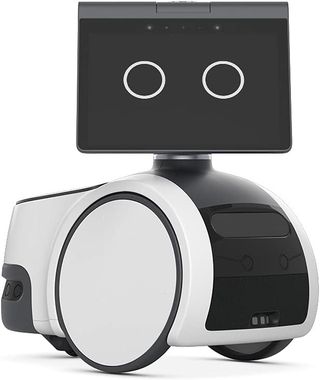Artificial intelligence has been all over the news recently, ever since ChatGPT started to dominate headlines last year. But generative AI and chatbots are only one area of artificial intelligence, and smart home security cameras have been quietly embracing machine learning and AI technology for many years.
Now, you’ll find that many of the best home security systems are already embracing AI, and there ae undoubtedly new and useful tricks to come as they become more and more sophisticated.
So what are AI security cameras, and what can they do? Read on to find out.
What are AI security cameras and what can they do?
As the name suggests, AI security cameras are surveillance capture tools imbued with artificial intelligence, meaning they can react to what they’re seeing, rather than just passively recording for owners to examine later.
Although you’ll likely see the acronym of ‘AI’ crop up on home cameras a lot more in the future, the truth is that artificial intelligence has been an unflagged part of smart home cameras for many years — although often requiring a subscription to unlock the full potential.
So, what can AI offer? The main advantage is that a smart camera can identify what it’s looking at. Whether the motion detected in your house is from a person or a pet can be all the difference between stressing you out with a notification or leaving you in peace.
Whatever movement is detected, such cameras are often capable of tracking people and animals too, shifting on an axis and keeping them in shot to help you better understand what’s going on in your home as it happens via a live feed.
This can also extend to object recognition. Back in 2021, Amazon’s Ring brand announced that its doorbells were being updated with the ability to recognize parcels, sending you a notification and informing you where a package had been left. At the same time, the company announced that its outdoor Spotlight Cam could now tell the difference between an open and closed door, allowing custom notifications to come through if you’ve been careless.
Facial recognition is another feature that some security cameras and video doorbells offer. This means that camera can learn who it’s looking at, being able to easily differentiate between household members, friends, family and strangers.
Some home security cameras also use AI to recognize sounds, and can send an alert if they hear something amiss — think smashing glass, crying babies or barking dogs.

(Image credit: Amazon)
Finally, on the advanced — and eye-wateringly expensive — end of the spectrum, there are robot security cameras like Amazon’s Astro. As well as offering an Echo Show on wheels, Astro can learn the layout of your house and patrol while you’re away — it can respond to sounds and follow intruders, ensuring you have quality footage to send to the police (though the inability to climb stairs can be a problem here!)
What might the future hold?
That’s the here and now, but things could get more impressive in the future. Some of what we might see in the home space is currently aimed at businesses — such as Scene Change Detection, where cameras use artificial intelligence to spot when anomalies occur in the area a camera is monitoring. Think objects left behind, missing items or even rogue door movements.
The power of generative AI could also be a big boon for security cameras, if they’re able to describe exactly what they’re seeing in real-time.
It seems that Amazon is thinking along these lines. There are also suggestions that the company is planning a future version of the aforementioned Astro bot that includes an “intelligence and conversational spoken interface” to “engage in a Q&A dialogue on what it saw.”
That means it might be able to alert a human if it sees the gas hob has been left on, remember where you left your keys or call an ambulance if it sees someone fall over. It could even potentially inform you if your child has uninvited guests over when you’re not around.
This may sound like the stuff of science fiction, but with the rate that AI tech has advanced in the last few years, it may not be a pipe dream for too long.
This post was originally published on 3rd party site mentioned in the title of this site




